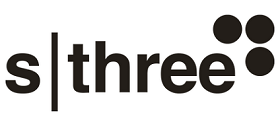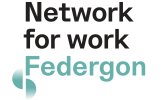8 praktische tips voor het onderhandelen over je uurtarief als freelancer
In veel sectoren, zoals de IT- of life sciences-sector, is er nog steeds een grote vraag naar kandidaten, die wordt versterkt door het tekort aan experts in de STEM-industrie. Hoe moeten freelancers hun gewenste uurtarieven krijgen? Ontdek in dit artikel acht praktische tips.
1. Find out about your potential client/employer
It wouldn’t be a good tip to point out the presumably good economic situation of the company in negotiations about the hourly rate. But ultimately, you can take this fact into account when calculating your hourly rate. So, you should not set your rate too low.
2. Prepare yourself for possible tasks
When you go into negotiations about hourly rates, you are increasing your chances if you already know a lot about the company in question. For example, you can outline possible solutions to problems and prove that you are worth the money a company should spend on your work. You can easily obtain important information from the internet. Look for information about the company’s philosophy on the company’s website or browse through professional networks where others comment on the company.
3. Do not try to justify your price, but positively present the service that the customer gets for your hourly rate
Companies are usually always looking for ways to save on staff costs. However, if you provide good arguments why possible additional costs for your work can be worth it, you will be able to push through a higher hourly rate.
Example: If a company doesn’t have high revenues but wants to tackle digitization with its existing business assets, you can list all the benefits of working with you and thus indirectly demonstrate to the customer how your labor costs can soon pay for themselves.
4. Always adapt your hourly rate to the project in question
If you take on several projects for a client, you can work with individual hourly rates. This way, you show that you are willing to compromise for differently demanding work to adjust your hourly rate accordingly. In the end, it will be a mixed calculation for you, where in the best case you will come back to your desired hourly rate.
5. Avoid unnecessary compassion
It’s obvious that you sympathize with companies if, for instance, the company is in a difficult economic situation. But you should be aware that you are negotiating at the same level as business partners. Your counterpart will already have calculated for themselves and will have an idea of the price for the desired work. However, this doesn’t mean that you are only foregoing fair payment for your work out of good will.
In addition: Who pushes his own hourly rates voluntarily down ever further, gives the impression to be not convinced by his own work. It’s best to set yourself a limit in advance, under which you are not willing to go.
6. Suggest compromises
If you want to enforce your hourly rate, you can make compromises to do so. For example, it might be possible for you to offer to pay your client’s expenses for meals yourself or to cover travel expenses on a pro-rata basis. Another possibility to make concessions can also arise in projects through the payment modalities. For example, you could suggest to your customer that you offer a discount for payment in advance. You would then also have an advantage, the security that your invoice will also be paid.
7. Ask about the prospect of follow-up orders
You can use the negotiation of hourly rates as an introductory conversation for cooperation on further projects. For example, offer your counterpart that you still want to stay at your hourly rate for this first project. If further projects follow, you can then offer your client a discount.
8. Stretch your assignment
In some cases, companies don’t have the cash to pay a higher amount all at once. While maintaining your required hourly rate, you can offer your client to split the job over several months, for example, so that the costs can be better spread. At the same time, this gives you the security of knowing that you will be employed over a longer period.
Remain firm in negotiations about hourly rates
For a Freelancer, a lucrative contract is always the prospect of a little more financial security. That’s why you should always know exactly what you’re worth when negotiating your hourly rate. Because ultimately, as a freelancer, you always have to think about yourself and your economic situation.












